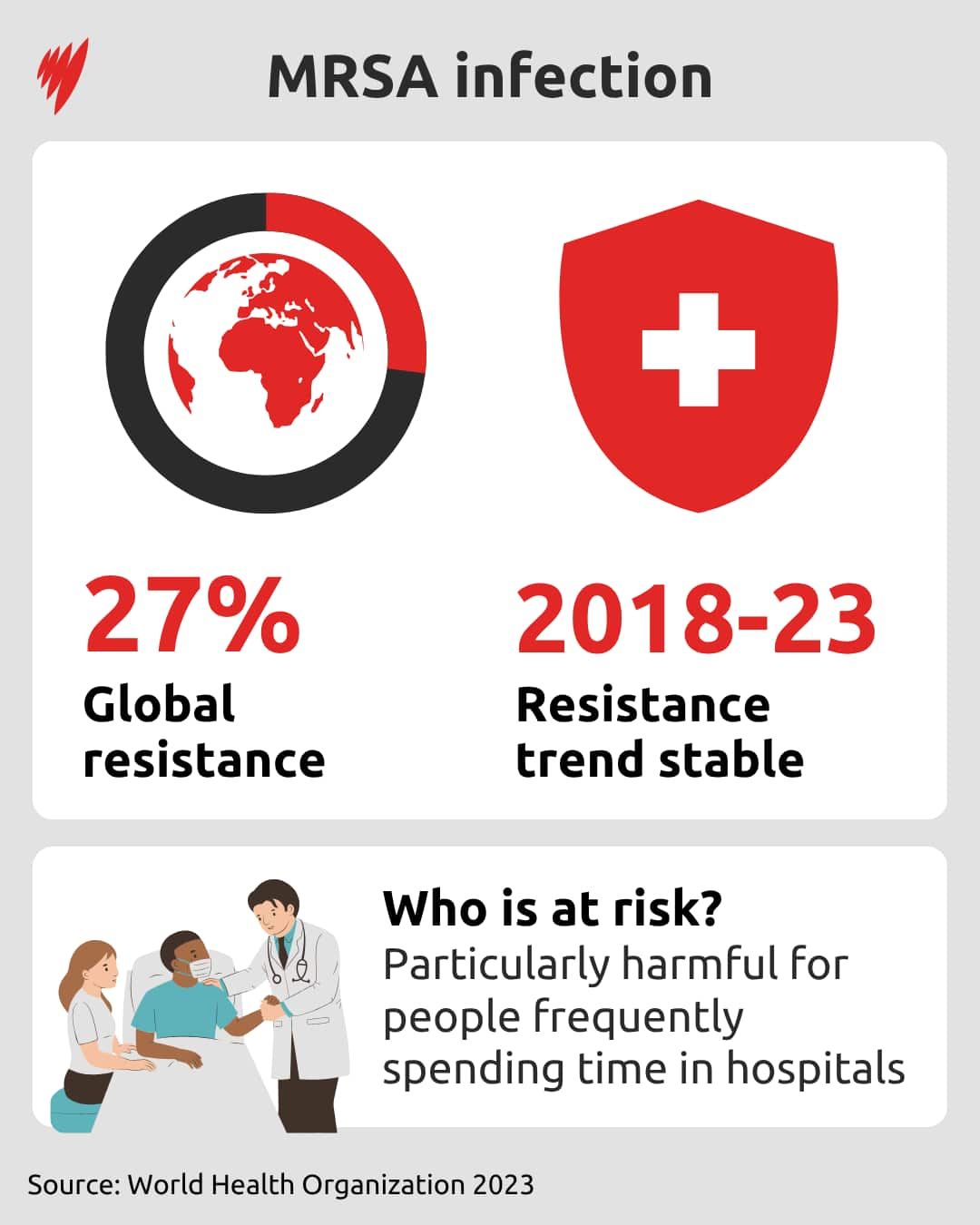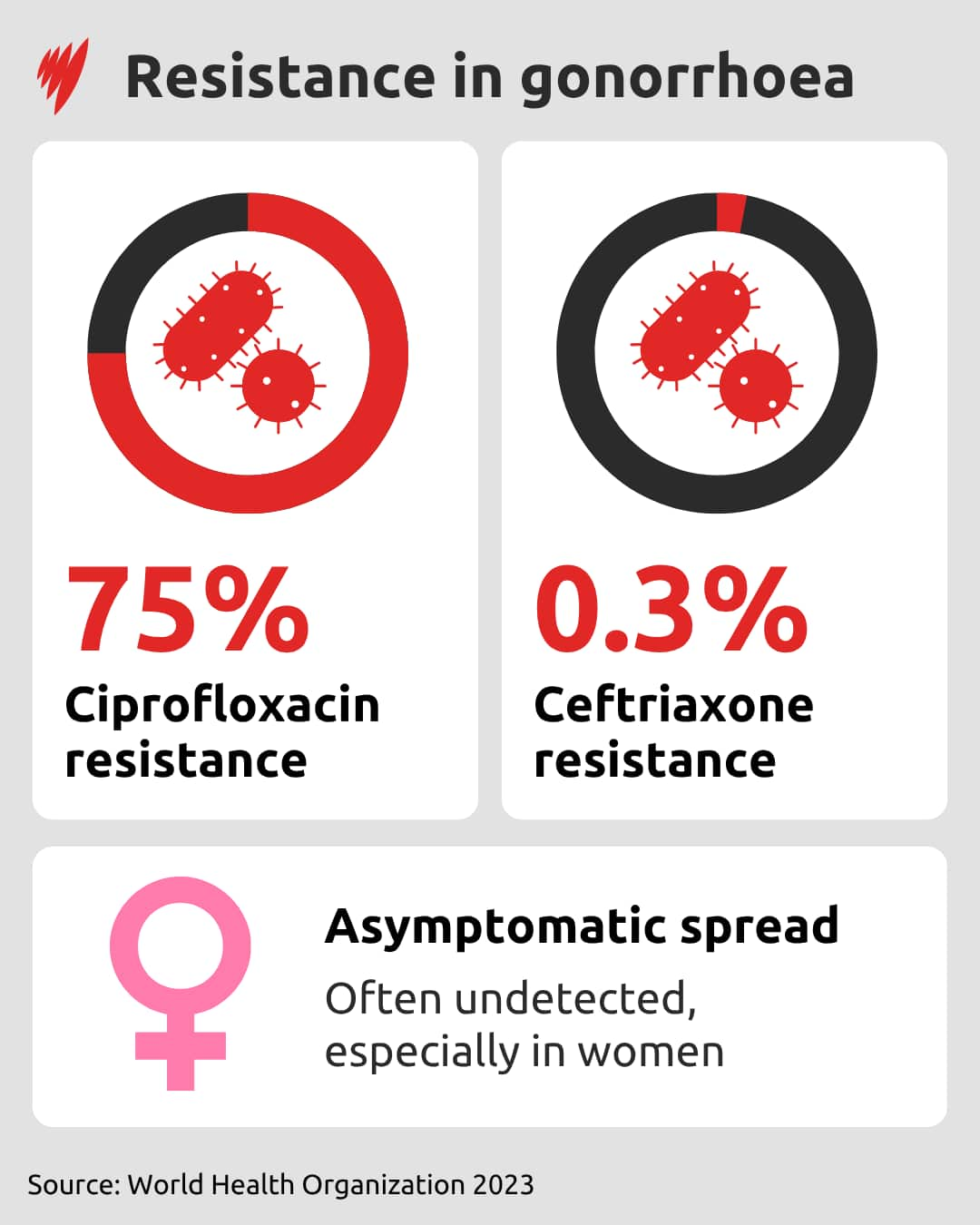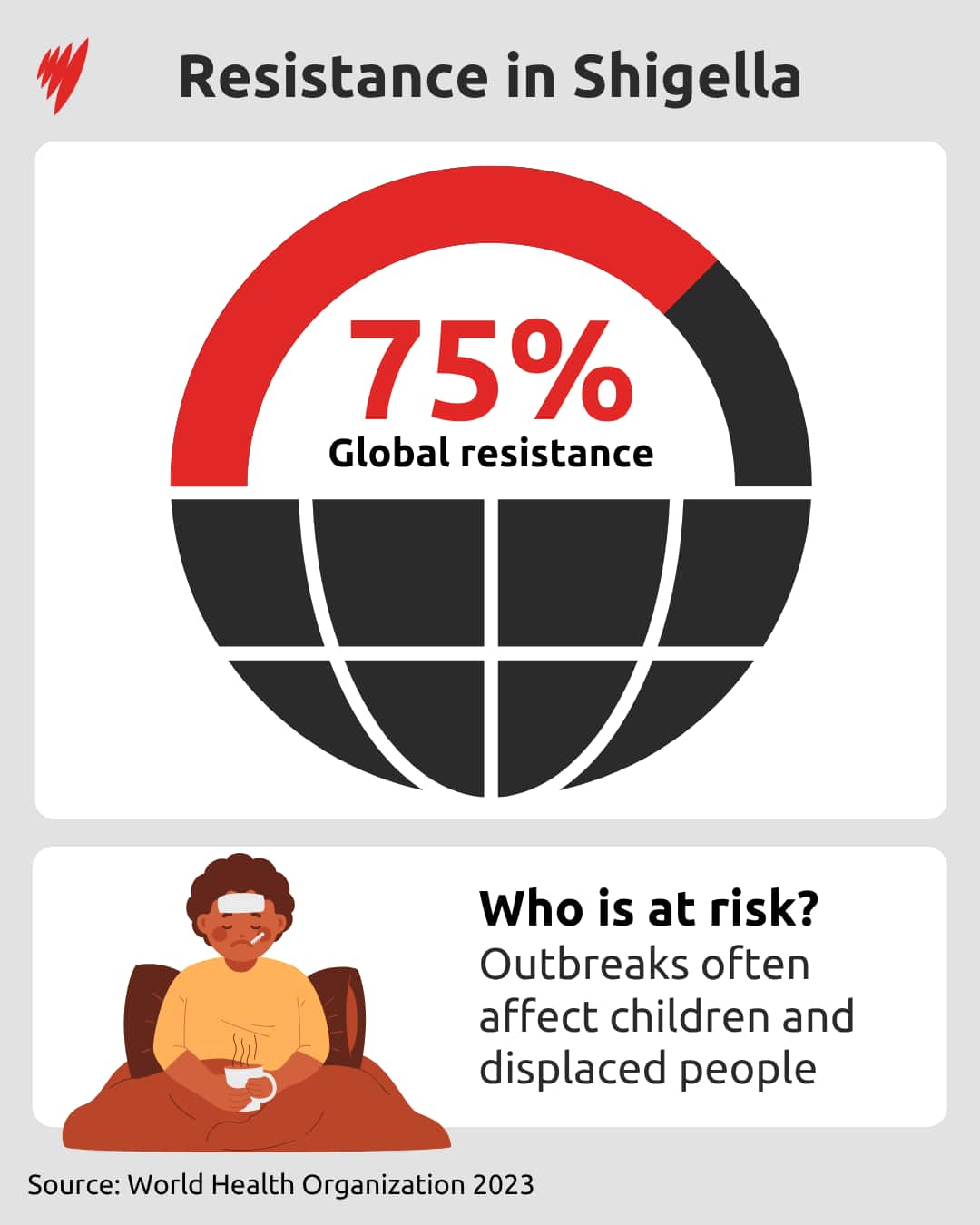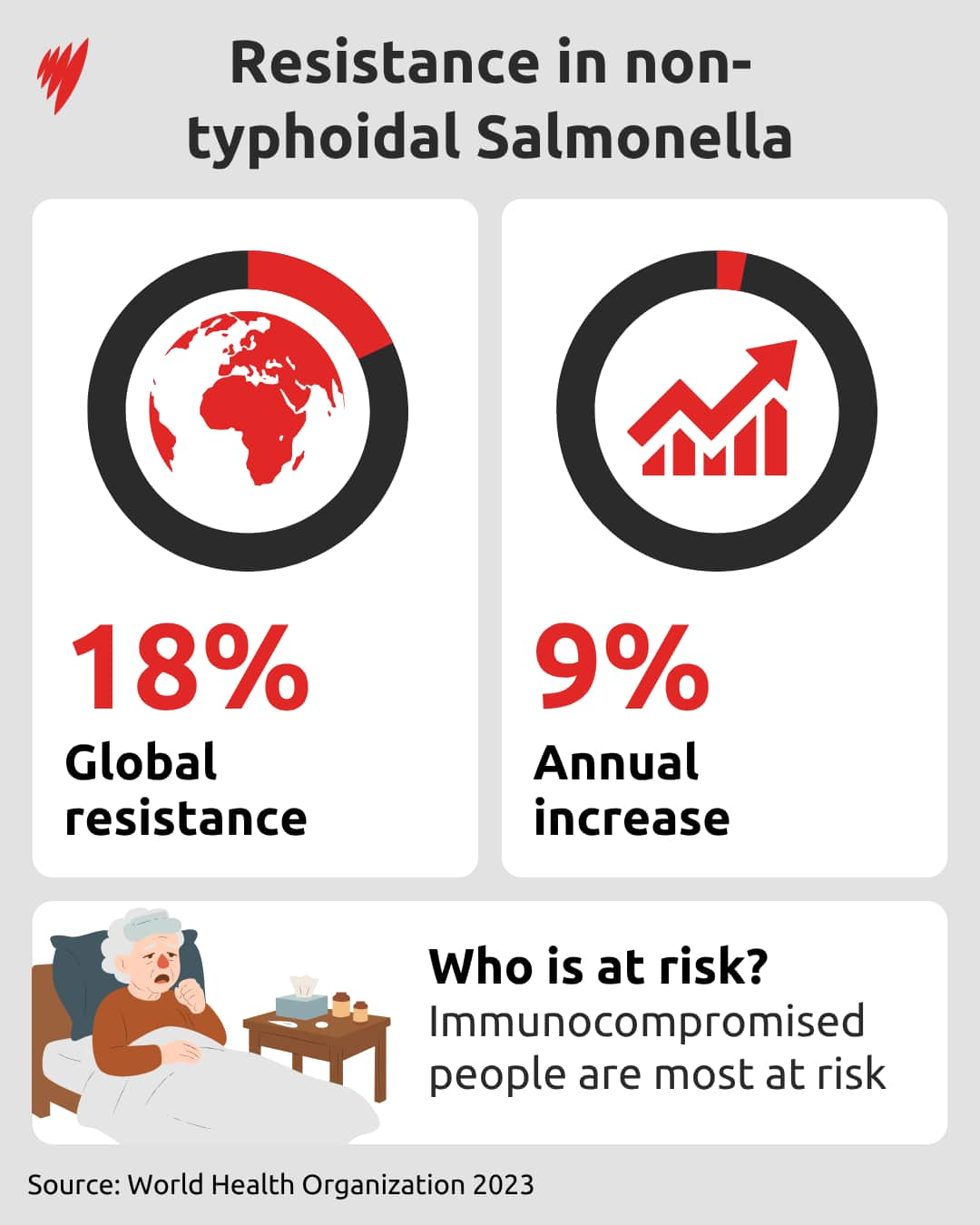Share this @internewscast.com
Experts are raising concerns that the current levels of medication prescriptions might be exacerbating the problem of drug resistance.
Research by the World Health Organization (WHO) highlights a troubling trend: globally, certain bacteria are becoming more resistant to antibiotics. In some areas, up to one-third of infections are no longer responding to standard treatments.
According to data from the WHO, collected between 2018 and 2023, there has been an annual increase in antibiotic resistance ranging from 5 to 15 percent.

In Australia, Keflex, the brand name for the antibiotic cephalexin, is among the most commonly prescribed drugs. It is used to treat various infections, such as those affecting the ear, skin, respiratory system, and urinary tract.
Data collected by the WHO between 2018 and 2023 shows antibiotic resistance increased between 5 and 15 per cent per annum.
She says Keflex — the brand name for cephalexin — is one of the most prescribed medications in Australia, dispensed for a range of infections including ear, skin, respiratory and urinary tract infections.
It’s given at absolutely epidemic levels.
“Those can actually be poorly prescribed, which can lead to poor patient outcomes if they’re not necessary.”
Challenges in some areas
However, this requires specialist expertise and equipment, both of which can be hard to access in regional and remote parts of Australia.
It’s a catch-22 that Dr Trent Yarwood tells SBS News is an “inevitable” evolution in the ongoing battle between medical innovation and ever-changing pathogens.
How do germs become more resistant?
“Because you’ve killed off all the ones that are not resistant, then those couple that are left over are able — if you don’t treat the infection completely — [to] multiply and take its place.”
Yarwood says that while antibiotics are “incredibly important” for patients undergoing chemotherapy, intensive care and joint replacements, their use can create a “vicious cycle”.
The more antibiotic you use, the more likely you’re to see resistant germs, which then means you need to use more antibiotics.
“The concern for us in Australia is that we do actually have quite high rates of antibiotic use compared to other similar countries. So it’s certainly something that we need to watch out for in the future,” Yarwood says.
Which pathogens are on the rise?
Gonorrhoea is one of the infections that is becoming harder to manage with oral prescriptions, with treatment now often given by injection or in combination with oral tablets.

Source: SBS News
The WHO survey found that three-quarters of urogenital infections of gonorrhoea were resistant to ciprofloxacin — a broad-spectrum antibiotic — and resistance is growing in the more recently developed medicine ceftriaxone.
Shigella, a pathogen that causes diarrhoea, is also becoming more resistant to oral medicines.

Source: SBS News
Around 30 per cent of gastrointestinal infections caused by Shigella showed resistance to treatment, increasing the risk of treatment failure.
Around 18 per cent of these infections are resistant to treatment, with immunocompromised people and those living with HIV identified as the groups most at risk.

Source: SBS News
For hospital patients and those living in aged care, the threat of MRSA is also becoming a pressing issue.
The survey found that 27 per cent of MRSA infections in the bloodstream were resistant to treatment.
A ‘significant risk’ to children
Anita Williams, a research officer in infectious disease epidemiology at The Kids Research Institute Australia, says the WHO survey findings are “alarming”.
“Since 2013, enterobacterials such as E. coli resistant to co-trimoxazole have increased from 16.9 per cent to 24.8 per cent, and resistance to Augmentin has increased from 4.2 per cent to 12.8 per cent,” she says, referring to the WHO’s findings.
These antibiotics are common first-line treatment for urinary tract infections in children.
Although lower than reported globally, these numbers “represent a significant risk to paediatric healthcare in Australia”, Williams says.
How do we fight antimicrobial resistance?
Thursky says antimicrobial stewardship also plays a “vital role” in reducing the risk of AMR.












